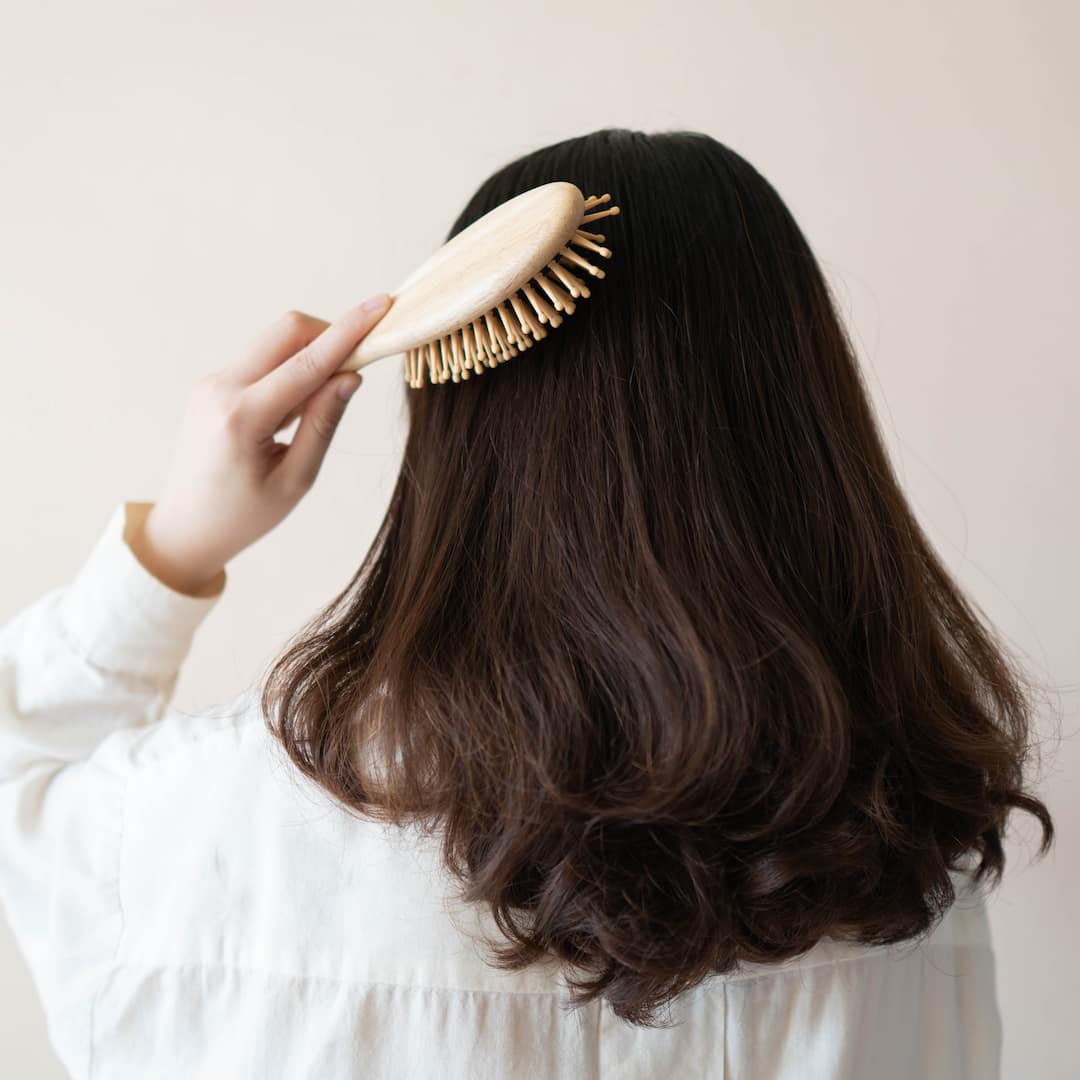Dry or Oily Hair? Follow These Tips For a Healthy Scalp

Thick, healthy hair can enhance your confidence and make you feel more attractive. However, for a truly healthy head of hair, it’s important to know that nourishing your hair alone may not be enough. You should also prioritize maintaining a healthy scalp, as it is the foundation of your hair.
A healthy scalp is vital for healthy hair. If you're facing hair problems like dryness or excess sebum that affects your lifestyle, it's important to find swift solutions. Let's learn about the role of the scalp in hair health, understand the causes of dryness, and discover the steps to keep your scalp healthy.
Facts About Your Scalp You Need to Know
The scalp is the base of your hair. When you take care of your scalp regularly, your hair stays healthy. The scalp plays a crucial role in hair health, including:
- It provides nutrients for hair growth, maintains the balance of sebum, and moistens the hair to prevent dryness and damage.
- It cools down and excretes wastes from the body such as sweat, uric acid, or lipid acid, as well as helping to monitor body temperature. This process of waste excretion makes the scalp and hair greasy, so it requires regular washing.
- The scalp signals abnormalities in the body, including illness, chemical allergies, and other symptoms that can result in hair loss and a dry, itchy, and peeling scalp.
Factors that directly boost a healthy scalp include selecting hair and scalp nourishing products, maintaining good hygiene and positive food and water intake. A weak scalp may cause problems, such as dandruff, a peeling scalp, Seborrheic Dermatitis, and dry and oily hair. For those experiencing dry or oily hair, scroll down to read tips for proper scalp nourishment.
Treating Dehydrated and Weightless Hair
Dry Hair: Symptoms and Causes
Dry hair lacks moisture as the natural oil is destroyed. The hair scales fall off, or the sebaceous glands in the hair follicles responsible for producing natural sebum are not functioning properly. As a result, the hair has lower porosity, looks dehydrated and frizzy, and gets easily tangled. Additionally, some other factors and issues negatively affect hair health, as follows:
- A dry scalp causes the hair roots to produce less sebum than usual.
- When hair scales are damaged, the hair loses porosity.
- Health issues, aging, abnormal food intake, hormonal abnormalities, and genetic disorders.
- Improper hair treatments such as washing hair with hot water, using electrical hair styling tools, as well as using chemicals during hair curling, straightening, and dyeing.
- Dry and hot weather, as well as frequent exposure to sunlight or wind.
Scalp Treatment Steps for Dry Hair
If you’re experiencing dry hair and want to strengthen your scalp health and add volume to your hair, you can simply wash your hair 3-4 times per week. Also, choose a shampoo that doesn’t contain SLS and SLES substances, and avoid washing your hair with very hot water, as it can cause your scalp to lose moisture and natural sebum.
In addition to external hair treatments, don’t forget to nourish yourself with healthy fats, protein, iron, zinc, vitamins A, B12, C, D, biotin, and ensure an adequate water intake. By doing all these, your dry and damaged hair will become soft and smooth and regain volume once again.

Treating Oily and Greasy Hair
Oily Hair : Symptoms and Causes
Oily hair is easily noticeable as the scalp and hair look greasy, sticky, and unwashed. Those facing this issue often feel self-conscious. The main cause is an excess production of sebum by the scalp's sebaceous glands. Common factors and issues causing oily hair include:
- Hormonal changes in teenagers, pregnant women, and those on their periods, for instance.
- Washing hair too often, not washing it for too long, and improper hair washing methods.
- Straight and thin hair, which is commonly caused by genetics.
- Using hair nourishing products unsuitable for the hair’s current condition.
- Stress encourages the sebaceous glands on the scalp to produce more sebum.
- Intense hot weather.
- Eating too much high-fat food.
Scalp Nourishing Steps for Oily Hair
- Wash your hair every day, or at least every other day, to cleanse dirt and sebum on the scalp.
- Choose products specifically for oily hair. Avoid formulas with oil and moisturizer.
- Don’t apply hair conditioner directly on the scalp, only towards the ends of your hair.
- Don’t frequently comb your hair or comb too hard. It will activate the sebaceous glands on the scalp to produce more sebum.
- Regularly clean your comb, pillows, and pillowcases to prevent the accumulation of dirt on your hair.
- Choose a product containing natural ingredients like ginger, kaffir lime, or aloe vera, which can remove sebum from hair effectively.
Whether you have dry or oily hair, it can be made better with kaffir lime scalp treatments and hair nourishing products from Kaff & Co. Formulated for all kinds of hair to effectively improve hair and scalp conditions, our products use the beneficial properties of ginger rhizome and cold-pressed kaffir lime oil. For more information, contact us at 095-973-5015, and browse products at promotional prices on our website.
- Your Cart
- 0 : 0.-